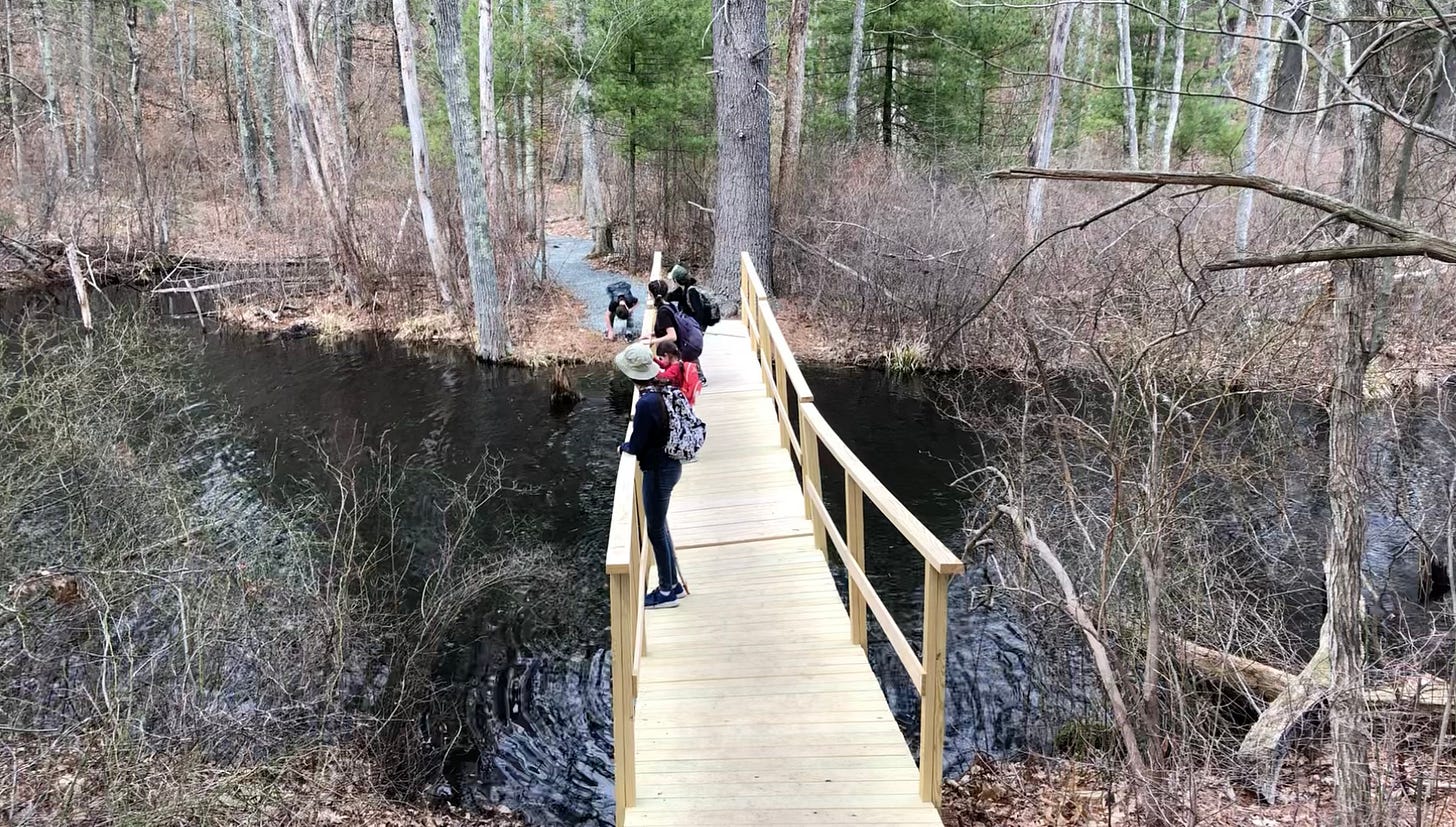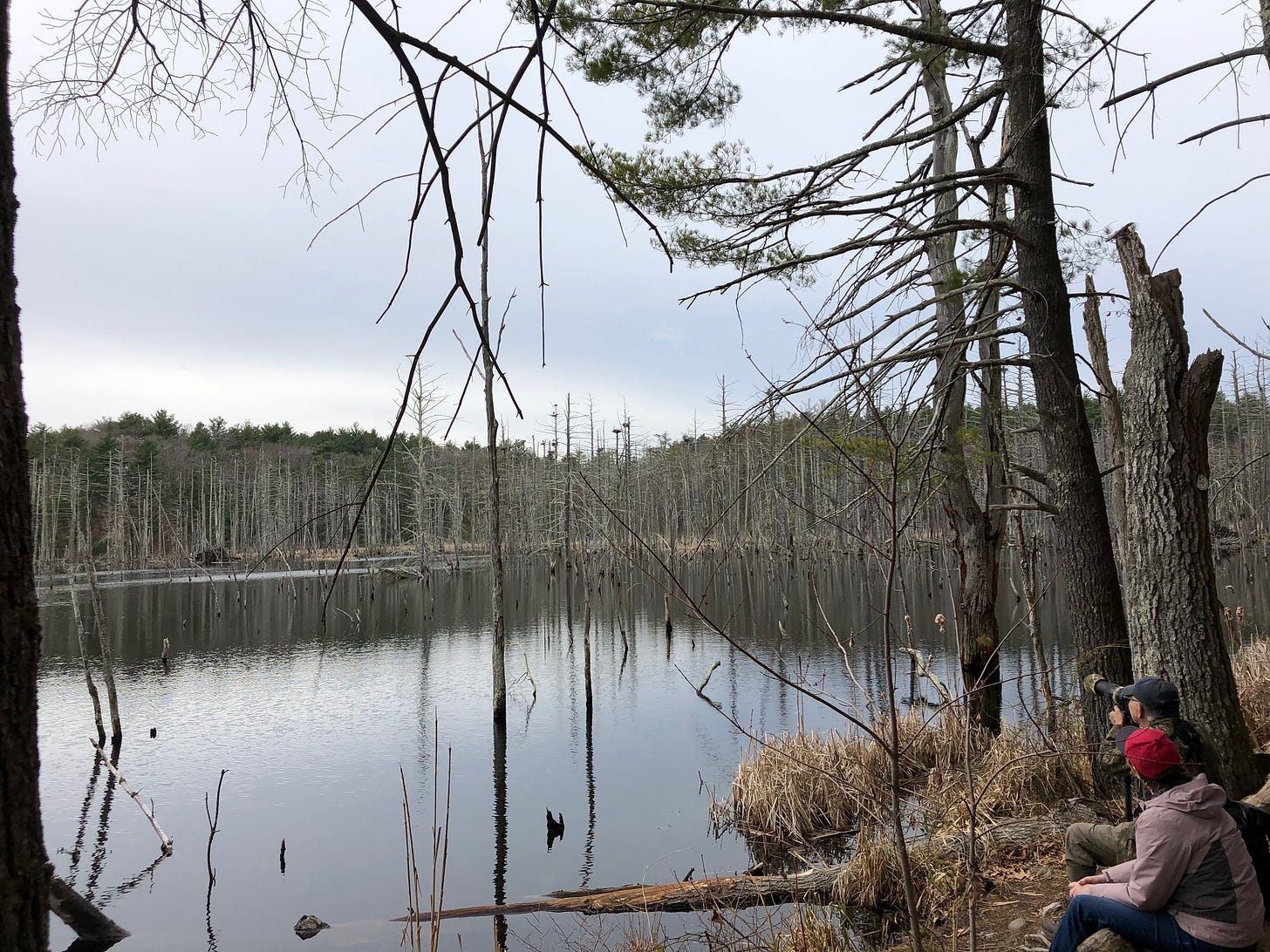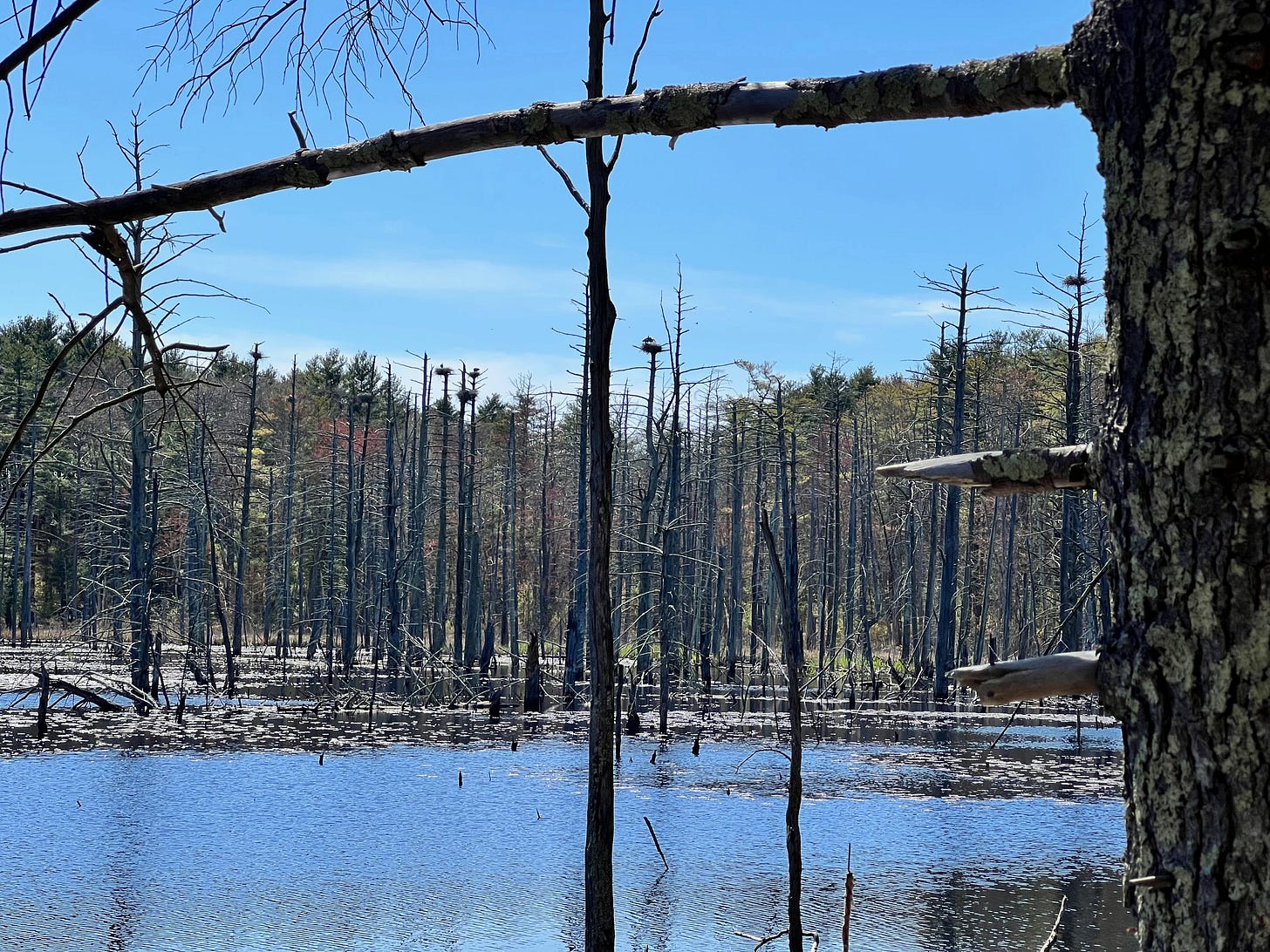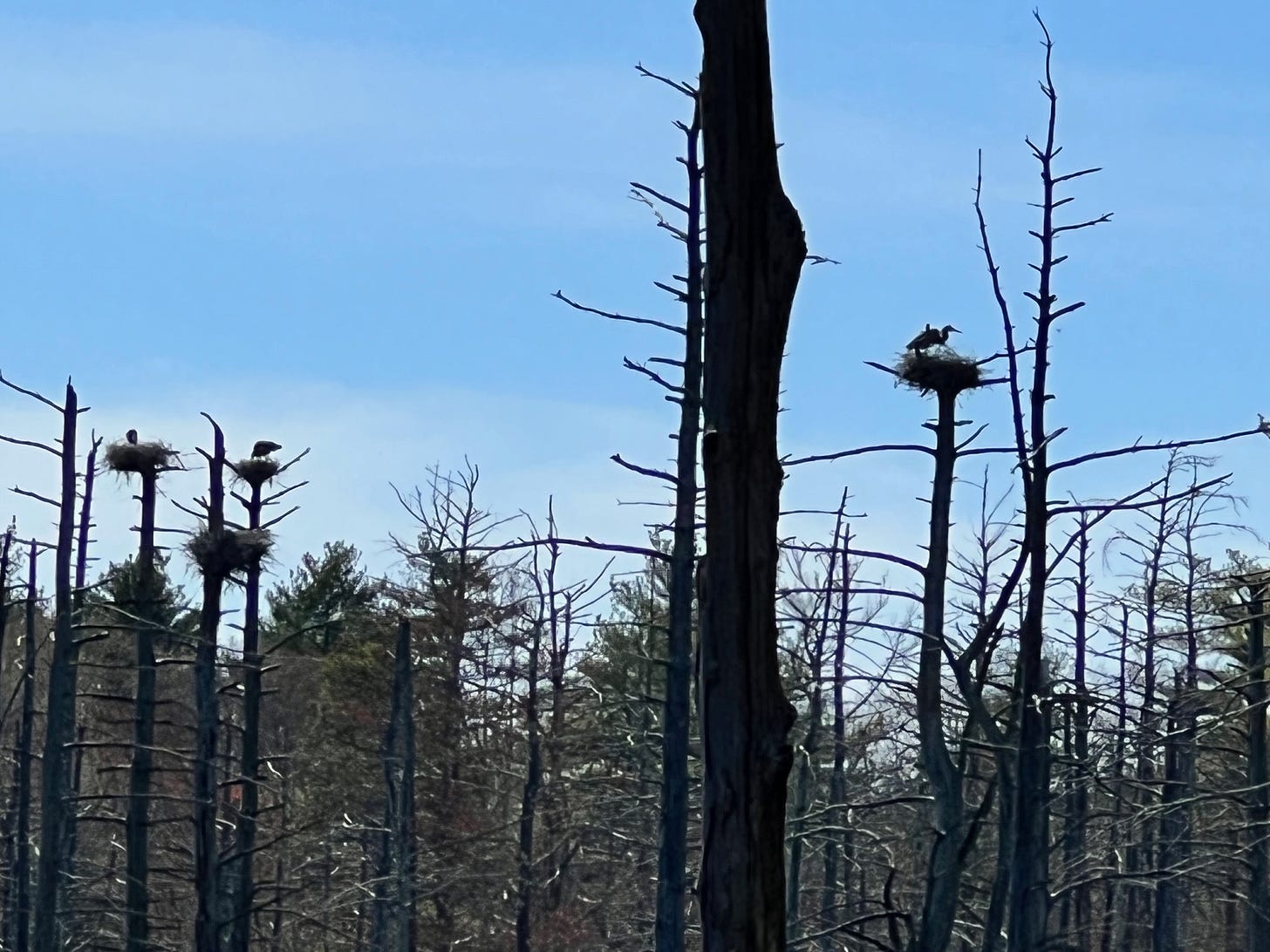On the floating bridge, its new wood pale, bright, above roiling dark water, my giggling children dart back and forth like busy sanderlings. From one railing to the other, rocking the bridge with a splashy clonk-click. Clunk- click, clock-clunk-- And as the ripples run away in broadening circles, children giggle. Then, one at a time, stop-- stand in the middle, legs spread for balance, relishing the motion while the others make it sway backandforth. Except the engineer who stands alone at the far end, skeptically inspecting the bridge's underpinning: "I don't think this thing is fastened down," he worries. In this pandemic season of worries we have escaped to the waters and the wild to Wollomonopoag's woods and wet- lands where the flapping herons build their nests at the tops of dead trees, and where beavers build dams to stop every drop of flowing water-- the dead water making dead trees. And where someone has built this floating playground.
Building off
’s February Poetry Adventure prompt: Bridge.I wasn’t sure where to go with the prompt, so I decided to try an ekphrastic poem and went to my photo library and searched for images of bridges. I found a 16 second video clip from March of 2020, a field trip we took to Wollomonopoag Conservation Area. I loved this moment because all the personalities are at play. The youngest, scolding her oldest sister for breaking the rhythm. Oldest getting distracted by looking at the scenery. The fourth child, the engineer, studying how the bridge is put together and worrying that everyone else is doing it wrong. And the other two middle children lost in the moment, simply enjoying the motion.
I remember how scary it was to leave the house in March of 2020. How when I had to stop for gas I got out gloves and disinfecting wipes from the first aid kit— we still thought covid-19 might be spread by touch and I was paranoid about getting sick from the gas pump handle.
In fact we ended up at Wollomonopoag because B. was taking a birding merit badge in scouts and the instructor had recommended it as a great place to spot nesting great blue herons. She ended up not finishing that merit badge because the classes were canceled as everything locked down; but I thought that herons would be a great distraction from everything.
Indeed, we got to hike in the woods and escape momentarily— or at least try to— from the fear. Though some of my children now have negative associations with some of the nature preserves we discovered in that season, I have nothing but gratitude.
And of course watching the flapping herons brought a fragment of one of my favorite poems to mind, which I recited as we hiked:
Where dips the rocky highland Of Sleuth Wood in the lake, There lies a leafy island Where flapping herons wake The drowsy water rats;
It’s from W.B. Yeats’ “The Stolen Child” which has a haunting refrain:
Come away, O human child! To the waters and the wild With a faery, hand in hand, For the world's more full of weeping than you can understand.
A perfect poem. I recite it whenever I see herons, but it felt especially apropos in 2020 when the world felt very full of weeping indeed and the waters and the wild were calling me to come away.








Great poem, Melanie! I love how you describe the personalities at play and they way they interact with the environment. I felt like I was watching the scene rather than reading it.
Melanie, have you ever seen Tom Moore’s animated film Song of the Sea (Cartoon Saloon)? It opens with that refrain from Yeats—and the cartoon that follows earns it!